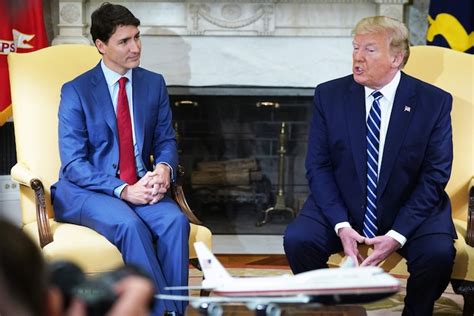President Trump set the stage for a potential trade showdown by announcing plans to impose tariffs on Canada and Mexico. The decision, unveiled through an executive order, marks a significant shift in U.S. trade policy.
In a bold move that sent shockwaves across international markets, Trump revealed his intention to slap a 25 percent tariff on Canadian and Mexican products starting February 1st. This announcement came amidst growing concerns over border security and drug trafficking issues.
“I think we’ll do it Feb. 1,” Trump declared during a press briefing, hinting at the swift implementation of the tariffs. The President also hinted at the possibility of imposing universal tariffs on all imports, citing what he perceives as exploitation of American trade policies by other countries.
The looming threat of widespread tariffs raised fears of an impending trade war with far-reaching implications. However, despite the tough rhetoric, no immediate levies were imposed following the executive order signing.
The order mandated a comprehensive review of various aspects of U.S. trade practices with reports due for submission by April 1st. These reports will assess unfair trading practices, currency manipulation issues, technology controls, and compliance with existing trade agreements.
Furthermore, officials are tasked with scrutinizing migration and drug flow from key nations like Canada, China, and Mexico into the United States. The directive underscores a strategic effort to address critical challenges affecting national interests.
Experts warn that such aggressive tariff measures could have ripple effects on global commerce and diplomatic relations if implemented hastily without careful consideration of their repercussions.
“I think we’ll do it Feb. 1.” – President Trump announced regarding imposing tariffs
As stakeholders brace for potential disruptions in established trade networks and supply chains, uncertainties loom large over the future trajectory of U.S. economic engagements with key allies and adversaries alike.
The unfolding developments underscore the complex interplay between domestic policy imperatives and international trade dynamics in shaping America’s role in an increasingly interconnected world economy.
Amid escalating tensions over trade imbalances and security concerns, navigating these turbulent waters demands delicate diplomacy and strategic foresight to safeguard national interests while fostering mutually beneficial relationships on the global stage.




Leave feedback about this